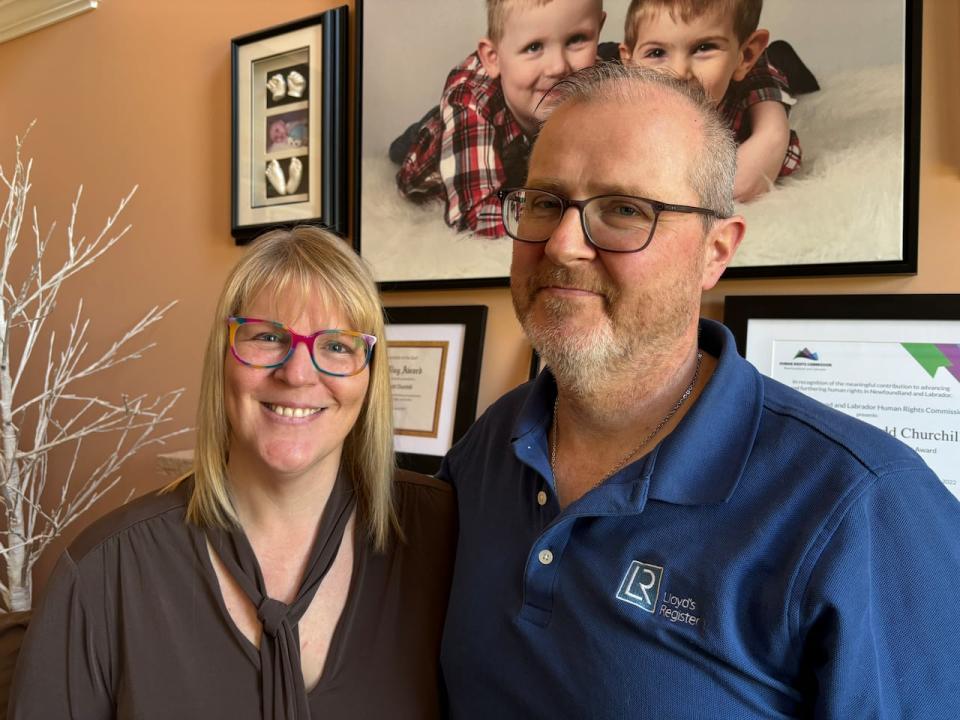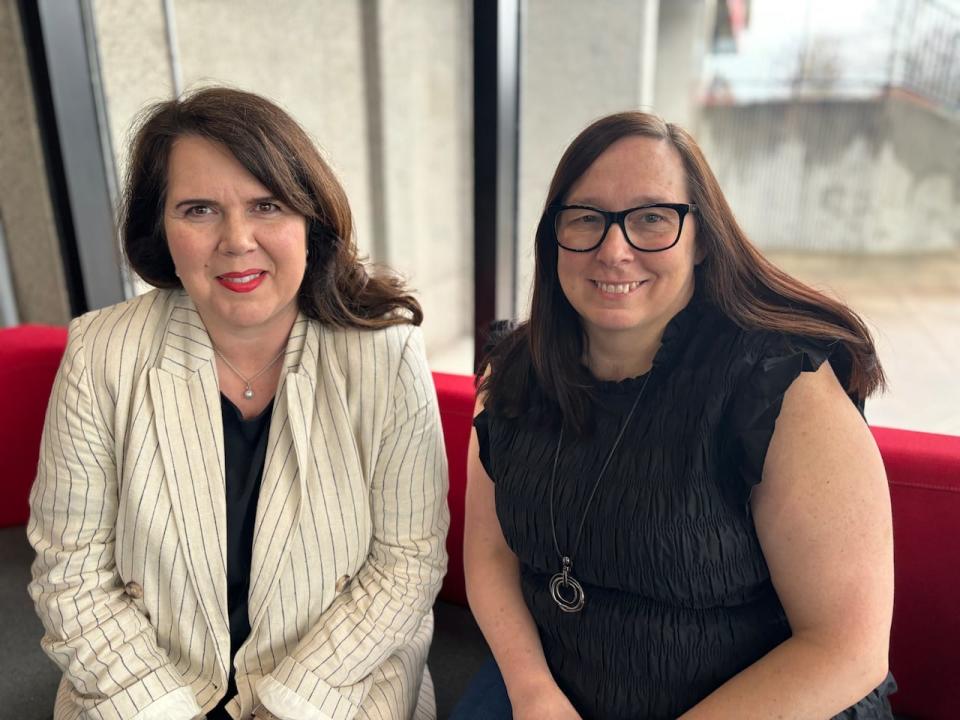Parents of deaf students say their children are being neglected by N.L. education system


Samantha Brown says her daughter Lilly is falling behind in school due to inadequate American Sign Language support. (Submitted by Samantha Brown)
Some parents say the Newfoundland and Labrador education system is failing their children, especially those living outside of St. John's.
Samantha Brown says she's spent almost seven years fighting to get adequate deaf services and support for her 11-year-old daughter, Lilly, who attends Eastside Elementary in Corner Brook.
Brown says her daughter did not have any deaf support from kindergarten to Grade 3, leaving her language-deprived and often unable to learn or communicate.
Lilly is currently approved for only two hours a week with a deaf and hard of hearing teacher, Brown says, and the family has to reapply for that service every year.
Eastside Elementary tries their best to accommodate her daughter, said Brown, but there's a lack of deaf educators in the province, and it's leaving children like Lilly frustrated and isolated.
"They're basically depriving her of an education or a way to learn," she said.
In March 2023, Kim and Todd Churchill won a human rights case against the Newfoundland and Labrador English School District, which now operates as NLSchools, for failing to accommodate and discriminating against their deaf son, Carter.
Carter, 13, is now learning in an American Sign Language immersive classroom at St. Paul's Junior High in St. John's, and a deaf and hard of hearing teacher has been hired to work in his classroom. It's a great start, the Churchills say, but there's been no systemic change to deaf education throughout the province, even after a nearly six-year battle with the school district that resulted in the human rights case win.

Kim and Todd Churchill say no systemic changes have been made to deaf education in the province, despite winning a human rights case last year that found the Newfoundland and Labrador English School District discriminated against their deaf son, Carter. (Jessica Singer/CBC)
They say Carter has been unable to adequately learn or communicate in school for his entire life, and after years of social isolation and discrimination, he's being forced to learn Grade 7 curriculum, despite him likely having a Grade 1 education due to years of language deprivation.
"This is a constant reminder to us that had something been done in the very beginning, we would not be here still having to fight for our child," said Kim.
"I know he certainly expresses his frustration to us at night when he comes home and he says … 'I don't understand what they're teaching me,'" said Todd.
In an emailed statement to CBC News, Education Department spokesperson Angela Picco said there are 18 itinerant teachers, 20 teaching and learning assistants, and four teachers for deaf and hard of hearing students in the province.
At a news conference Thursday afternoon, Education Minister Krista Lynn Howell said the department is always encouraging training to any student assistants who want to learn ASL.
"Often we don't have somebody who's certified in sign language to be available to these students," she said.
Learning along the way
Although there are still issues with the way Carter is treated by the education system, say the Churchills, they note changes have been made to improve access to ASL in St. John's — but that access dwindles for deaf children who live outside the city.
For instance, the only ASL immersive classrooms in the province are at East Point Elementary and St. Paul's Junior High in St. John's.
Brown says when she asked the provincial government for a full-time deaf and hard of hearing teacher for Newfoundland's west coast, the government denied the request, saying the teacher would be pulled away from other students who need the resource.
She says her heart sank.
"I feel like Lilly deserves to have that right as any other kid," said Brown.

Brown says the provincial government has assured her a student assistant who can speak ASL will be assigned to Lilly when she moves to a new school next year. (Submitted by Samantha Brown)
Brown says the provincial government has assured her a student assistant who can speak ASL will be assigned to Lilly when she moves to a new school next year. Brown says Howell told her that if the school system isn't able to find someone for Lilly who speaks ASL, a student assistant will be trained along the way.
Todd Churchill scoffed at the response.
"It'd be like saying, 'I'm going to learn Japanese in two weeks,'" said Churchill, who is in touch with Brown. "It was the most idiotic statement I've ever seen written from somebody who is actually now the leader of how education's being provided."
Picco said in an emailed statement on behalf of the department that ASL classes are provided three times a week to teaching and learning assistants working with deaf students.
Systemic change
Paula Coggins of the Newfoundland and Labrador Association of the Deaf says the province needs more deaf and hard of hearing teachers so deaf students can learn and develop the same as any other child.

Renee Phair Healey, left, and Paula Coggins say there is a shortage of deaf and hard of hearing teachers in the province. (Jessica Singer/CBC)
"When I grew up, I attended a school for the deaf, and I had my five hours every day, the same as kids in hearing schools," said Coggins, an ASL consultant with the NLAD's family communication program, which develops interventions and support for families and children learning ASL.
Renee Phair Healey, the NLAD's director of programs, says the provincial government is trying to make improvements and seems to be listening to deaf perspectives, but there have been significant challenges recruiting deaf education professionals in the province. So training educators in ASL once they're paired up with students is often one of the only options.
It will take a while for systemic change to be felt in the education system, but Phair Healey says the province is moving in the right direction. The provincial government has offered new virtual programs to support staff, students and families, and conversations about how to best support deaf students are ongoing.
"I feel that there's been a recognition, a recognition of listening to deaf voice, of listening to deaf lived experiences and deaf professionals and best practices," said Phair Healey.
Download our free CBC News app to sign up for push alerts for CBC Newfoundland and Labrador. Click here to visit our landing page.


